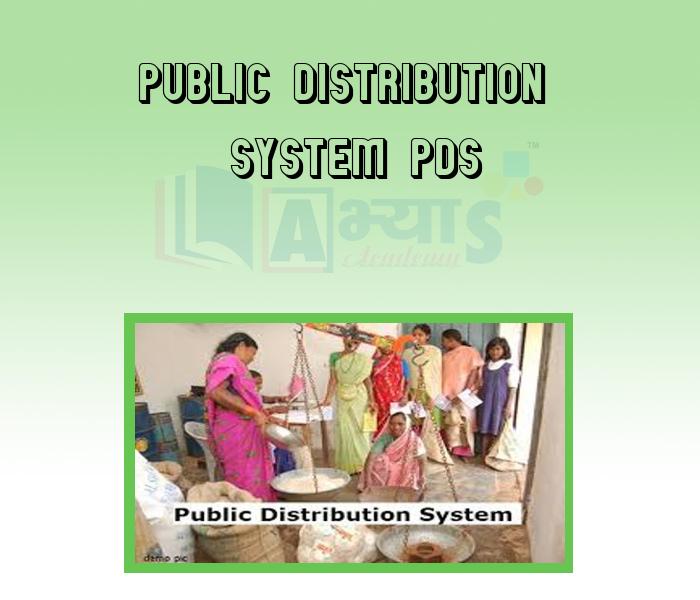Public Distribution System PDS













Public Distribution System PDS
Public Distribution System (PDS): Through government regulated ration shops, the food procured by the FCI is distributed among the poorer sections of the society. This is called the Public Distribution System (PDS). Ration shops are now present in most localities, villages, towns and cities. There are about 5.5 lakh ration shops all over the country. Ration shops are also known as fair price shops. They keep stock of foodgrains, sugar, kerosene oil for cooking. These items are sold to people at a price lower than the market price. Any family with a ration card can buy a stipulated amount of these items (e.g. 35 kg of grains, 5 litres of kerosene, 5 kg of sugar, etc) every month from the nearby ration shop. The ration cards are of three kinds, colour - coded for easy recognition
Choose the scheme(s) that was/were initiated for poor in all areas. | |||
| Right Option : A | |||
| View Explanation | |||
The policy related to PDS has been revised to make it more efficient and targeted. The aim of which of the following was to provide the benefits of PDS to remote and backward area? | |||
| Right Option : B | |||
| View Explanation |
There are three types of ration cards. Which of the following types of ration cards is for the poorest of the poor? | |||
| Right Option : B | |||
| View Explanation | |||
Students / Parents Reviews [10]
Being a parent, I saw my daughter improvement in her studies by seeing a good result in all day to day compititive exam TMO, NSO, IEO etc and as well as studies. I have got a fruitful result from my daughter.

Prisha Gupta
8thIt was a good experience with Abhyas Academy. I even faced problems in starting but slowly and steadily overcomed. Especially reasoning classes helped me a lot.

Cheshta
10thIt was good as the experience because as we had come here we had been improved in a such envirnment created here.Extra is taught which is beneficial for future.

Eshan Arora
8thA marvelous experience with Abhyas. I am glad to share that my ward has achieved more than enough at the Ambala ABHYAS centre. Years have passed on and more and more he has gained. May the centre flourish and develop day by day by the grace of God.

Archit Segal
7thAbhyas is a complete education Institute. Here extreme care is taken by teacher with the help of regular exam. Extra classes also conducted by the institute, if the student is weak.

Om Umang
10thIt has a great methodology. Students here can get analysis to their test quickly.We can learn easily through PPTs and the testing methods are good. We know that where we have to practice

Barkha Arora
10thAbout Abhyas metholodology the teachers are very nice and hardworking toward students.The Centre Head Mrs Anu Sethi is also a brilliant teacher.Abhyas has taught me how to overcome problems and has always taken my doubts and suppoeted me.

Shreya Shrivastava
8thMy experience with Abhyas academy is very good. I did not think that my every subject coming here will be so strong. The main thing is that the online tests had made me learn here more things.

Hiya Gupta
8thOne of the best institutes to develope a child interest in studies.Provides SST and English knowledge also unlike other institutes. Teachers are co operative and friendly online tests andPPT develope practical knowledge also.

Aman Kumar Shrivastava
10thI have spent a wonderful time in Abhyas academy. It has made my reasoning more apt, English more stronger and Maths an interesting subject for me. It has given me a habbit of self studying
